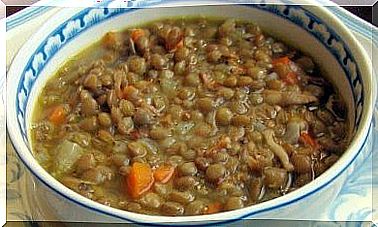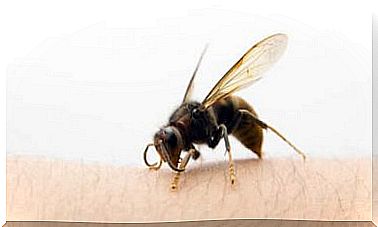Laxative Plants – The Best 7 Examples

If you suffer from constipation, laxative herbal teas may be the best remedy. In case you didn’t know, constipation is a problem that affects thousands of people. Processed foods, refined flour and stress are the main causes of this irregularity.
If you can’t go to the bathroom, you may experience other symptoms, such as bloating or cramps that prevent you from successfully carrying out your daily activities.
To solve the problem, we recommend that you use the best laxative plants.
Constipation: how, when and why?
Daily habits can trigger various imbalances in the body. One of them is constipation, which occurs due to irregularities in the intestines. If these organs do not function properly or are loaded with toxic and unhealthy foods, the elimination of feces is difficult.
Constipation does not only cause bloating and discomfort. If you do not go to the bathroom at least once a day, a lot of waste accumulates in the intestines that affects your health.
In addition, the evacuation of faeces should not require too much effort, and the stool should be soft. Otherwise, we are talking again about constipation, which can become chronic if it lasts a few days or weeks.
What are the best laxative plants?
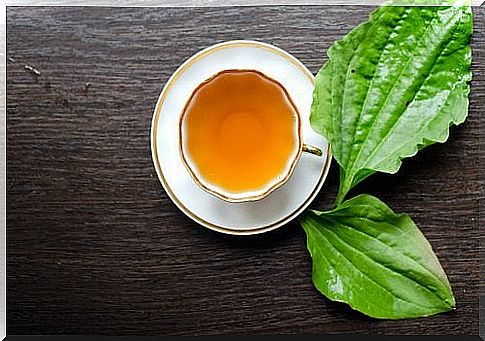
In order to be able to go to the bathroom once or twice a day, you need to adopt a healthy diet that includes fruits, vegetables and legumes and avoid eating processed, fried and breaded foods.
At the same time, it is very important to drink 8-12 glasses of water and exercise every day.
In addition to adopting these healthy habits, you can confidently use certain highly effective laxative plants, such as the following:
Plantain leaves
Plantain leaves contain a large amount of mucilage, a very useful ingredient for treating constipation.
Here’s how to prepare the remedy:
ingredients
- 1 tablespoon plantain leaves (10 g)
- 1 cup water (250 ml)
Method of preparation
- Put the water and the plantain leaves in a saucepan.
- Leave the mixture on the stove over low heat until it starts to boil.
- Take the pot off the heat and let it sit for 5 minutes.
- Strain the liquid and drink it immediately.
- You can drink plantain tea twice a day (a cup before bed).
Nettle
Nettle improves digestion and stimulates peristalsis, helping to eliminate feces. This plant is also beneficial to the liver.
ingredients
- 1 tablespoon nettle leaves (10 g)
- 1 cup water (250 ml)
Method of preparation
- Put the water and the nettle leaves in a saucepan.
- When the mixture boils, let it simmer for 5 minutes.
- Take the pot off the heat and let it sit for another 5 minutes.
- Strain the tea and drink it.
- You can consume up to 3 cups a day (one on an empty stomach, without other foods and the other two half an hour before lunch and dinner).
Licorice leaves
Licorice leaves fight heartburn naturally and cleanse the intestines. However, it is not recommended to use this remedy for more than two consecutive weeks, as it may cause water retention or increase blood pressure.
ingredients
- 1 tablespoon licorice leaves (10 g)
- 1 cup water (250 ml)
Method of preparation
- Heat water and licorice leaves in a saucepan for 10 minutes.
- Take the pot off the heat, cover it and let it sit for 5 minutes.
- Strain the liquid and enjoy it.
- You can drink up to three cups a day (one on an empty stomach and the other two after main meals).
hollyhock
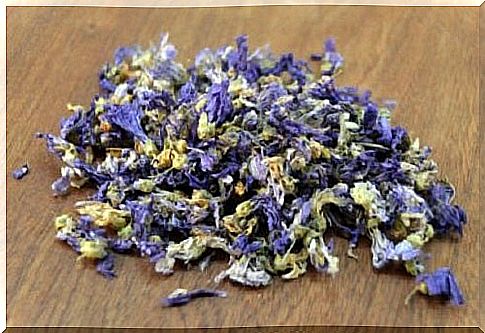
Mallow prevents constipation, improves digestion and relieves cramps and stomach pain. In conclusion, the tea obtained from this slope is ideal for any problem related to nutrition.
ingredients
- 1 tablespoon mallow leaves (10 g)
- 1 cup water (250 ml)
Method of preparation
- Heat the water, and after it boils, pour it into a cup.
- Add the mallow leaves and cover the pot.
- After 10 minutes, strain the tea.
- Drink the liquid before it cools down.
- You can consume up to three cups a day.
Cactus fruits
Even if their shape and thorns do not tell you this, cactus fruit is an excellent option to combat constipation.
ingredients
- 1 well-washed cactus fruit
- 2 cups water (500 ml)
Method of preparation
- Bring the water to a boil, and after boiling, add the cactus fruit.
- Take the pot off the heat and let it sit for 10 minutes.
- Take out the cactus fruit and drink the tea throughout the day.
Laxative plants – verbena
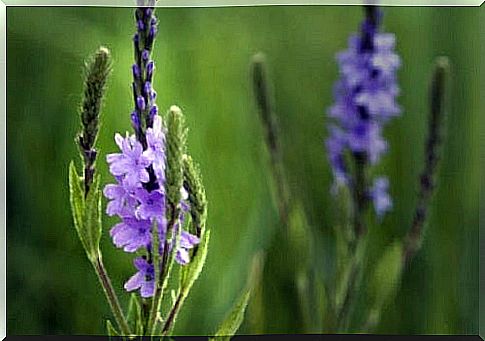
This is one of the most powerful laxative plants. In addition, verbena has analgesic properties, is anti-inflammatory and relieves cramps.
Verbena tea is one of the best remedies for gastritis and constipation.
ingredients
- 2 tablespoons verbena leaves (20 g)
- 1 cup water (250 ml)
Method of preparation
- Bring the water to a boil and add the verbena leaves.
- Take the pot off the heat and let it sit for 10 minutes.
- Then strain the liquid and drink it.
- Drink a cup in the morning, on an empty stomach, without other foods and one in the evening, before bed.
Olive leaves
The leaves of this well-known Mediterranean tree relieve constipation. Olive leaf tea is considered a very effective natural laxative.
ingredients
- 2 tablespoons olive leaves (20 g)
- 2 cups water (500 ml)
Method of preparation
- Bring the water to a boil, and when it boils, add the olive leaves.
- Let them boil for 5 minutes, take the pot off the heat and let it sit for 5 minutes.
- Strain the tea and drink a cup on an empty stomach, with no other food and one half an hour before lunch.
Representative image source: wikiHow.com

